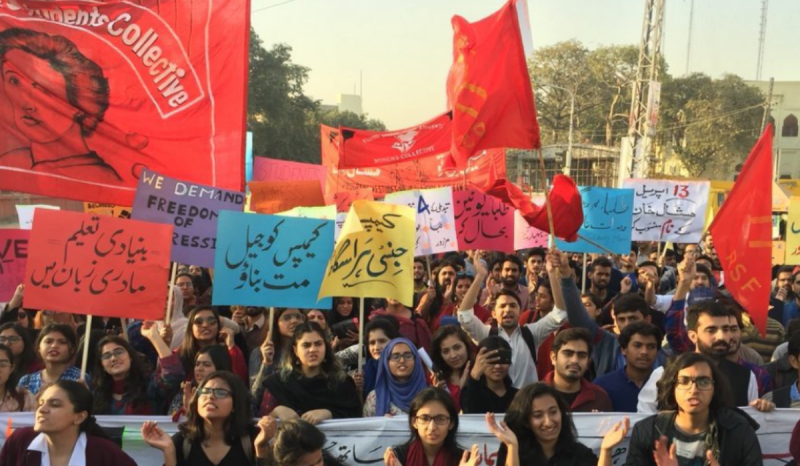Education has been a problem in many ways in Pakistan since the very beginning. Despite the efforts which our government has made for the betterment of education system, it still stands at the same place lacking in a number of aspects. The students who are lucky enough to afford expensive education receive it from private schools and go abroad for higher studies, that costs them much beyond the capacity of a layman.
As far as the problems of our education system are concerned, comes a list that covers every aspect, from the problem of clean drinking water in primary schools to the availability of hygienic food in universities, from the misbehavior of incompetent teachers to ethnic and religious discrimination. The problem starts from lesser ratio of girls in schools due to gender discrimination to the harassment which they face in universities and colleges, from undue burden of unnecessary stuff on children which hinders their mental abilities to suicides which students attempt when they fail to carry on the oppression. The problem starts when the life of an individual is at risk in case of Mashal Khan, a student who was put to death by a mob within the premises of university.
The story does not end here; we have a minimum population receiving standard education, and then a further increase in the school tuition adds to prospects of lower literacy rate. In addition to the new government’s policy to increase the tuition fee, the quota system, which was introduced to provide leverage to the students from remote areas where they do not have the facilities of standard education, has also been abolished. Many university students in different cities have protested against the very policies but never do we see it covered by media. Incompetency of the staff, from teachers to clerks working in institutes is never a secondary issue.
Moreover, the syllabus being taught in our institutes is highly unauthentic which needs to be revised. No wonder, the system followed in almost all schools does not meet the standard system of education, which on the contrary is considered highly accurate and followed in other countries. Despite all these issues and the fact that we are decades behind the first world countries in education, the total allocation of education in the budget 2017-18 was 2.8 percent, lesser than most of South Asian countries.
Moving on from other incompetencies in educational system to the problems which are more political in nature, we encounter the problems of centralization of facilities. It deprives people from remote areas with basic educational facilities.
Meanwhile, students facing such issues got up after decades of silence in a march held on 30th November in different cities through out the country. In Lahore, students from different institutes gathered and protested under the name of "Students’ Solidarity March", and marched from Istanbul Chowk to Chairing Cross, Mall Road. They had a charter in which they demanded certain rights from the government that included freedom of speech, representation of students in the decision making committees of universities, reduction in the school fee and implementation of harassment policies etc. The students also demanded to lift the ban on student unions which was placed in Zia's regime, as they consider it as a barrier to their freedom. They also demanded 13th April to be attributed to Mashal Khan and a local holiday should be announced on that day. The stressed the need to increase the percentage of GDP for education sector. Likewise, protests were held in Peshawar, Karachi, Faisalabad and Islamabad.
Students are the asset of state and educational system is a channel to refine them, to make them serve their society, to make them useful citizens; the citizens having an equal standing on the whole. Keeping this in consideration, the government should pay attention to the problems students face on daily basis and work for maximum benefits.






